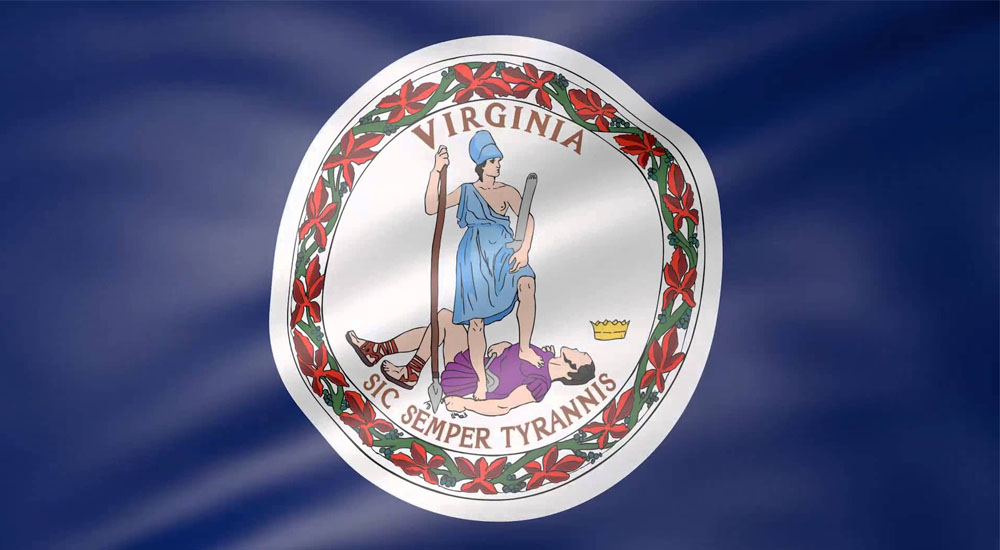When Was Virginia “Deeply Red” Anyway?
Much consternation and conversation have followed Jenna Portnoy’s Washington Post piece about the state of Virginia politics today, no doubt spurned by the editors’ choice of headline “How did deeply red Virginia become such a challenge for the GOP in a single decade?” However, Virginia has been competitive between the major parties for nearly a quarter-century. If that period has ended in ascendancy for the Democrats, it’s important to remember what it actually is, lest the wrong lessons be learned.
The evidence used for Republican dominance in Virginia comes with the first paragraph of Portnoy’s story.
A little more than a decade ago, President George W. Bush won Virginia with ease for a second time — an eight-point victory that was never in doubt.
Yet as Bush was winning Virginia in 2004, two of the five statewide officials were Democrats (Governor Mark Warner and Lieutenant Governor Tim Kaine), while one of the three Republicans (Senator George Allen) had won with a mere 52% of the vote in 2000. While Republicans did have a lopsided majority in the House of Delegates, the party’s State Senate majority was never outside single digits. One year later, Kaine was elected Governor was 52% of the vote, and both of his running mates topped 49% (although they lost narrowly). This was hardly “deep red.”
Of course, the Democrats are in a far better position now, but the improvement came from a competitive position, rather than one of Republican dominance. Indeed, the assumption that Republicans were in the catbird seat during the aughts has clouded pundits and politicians alike from what the party did right – and wrong – over the last 25 years.
For starters, Virginia did not simply fall into the Republican column in the 1990s. It took a focus on lowering taxes to bring victory. Then-Governor Allen pushed a tax-reduction plan in 1995 that won a majority of votes for Republican candidates (gerrymandered into a legislative minority). Jim Gilmore followed up with tax reductions in 1997 (“No Car Tax!”) and 1999 (brazenly claiming the Democrats’ plan to reduce the sales tax for groceries as his own). In the latter year, the Republican Party overcame the district lines to win majorities in the HoD and State Senators for the first time since it was still called the Readjuster Party.
The key presidential election wasn’t 2004, but 2000, when Bush carried Fairax County while Allen won his Senate seat. That was the year of Republican triumph in Virginia.
It took less than a year for it all to fall apart. Mark Earley, elected Attorney General in ’97, spent much of his gubernatorial campaign unsure of himself on taxes, while in Richmond State Senate leaders froze Gilmore’s plan to reduce the car tax to elimination. Suddenly, voters couldn’t associate the GOP with lower taxes and limited government anymore. Add to that a Democrat running for Governor without a record and warmly endorsed by Doug Wilder (the only Democrat in the Governor’s Mansion not to propose a tax increase for a generation), and voters who leaned right on economic issue and left on social issues – voters who had placed Reagan, Bush, Allen, and Gilmore into office – started peeling away from Republicans.
By 2004-5, the effect was obvious. George Bush the Younger – enactor of one of the largest tax reductions in American history, and the first presidential candidate not to propose a tax hike in office since Gerald Ford – won his eight-point win, while twelve months later Jerry Kilgore – who was so vague on taxes Kaine managed to outflank him on the issue – lost by six points. Even then, Republicans in Virginia managed to convince themselves that higher taxes were less damaging than departing from social conservative orthodoxies that alienated the increasing numbers of voters who weren’t white and/or supportive of marriage equality.
The one time Republicans in Virginia seemed to understand their predicament was 2009, when the entire Republican ticket ran on an anti-tax-hike platform. In many respects, they blazed a trail followed by Larry Hogan in Maryland, Charles Baker in Massachusetts, and Chris Christie in New Jersey. Sadly, it was Governor McDonnell himself who went back to the old failures with a major tax increase in 2013. Now the party has wedded itself to Donald Trump, whose only consistent position on taxes has been to raise them dramatically on imports while echoing much of the divisive nonsense that has been losing the RPV elections since 2001.
Virginia Republicans are convinced that since it worked once, it will eventually work again. Except that it didn’t work, and it won’t now.
D.J. McGuire is Financial Editor for Bearing Drift.
@deejaymcguire

